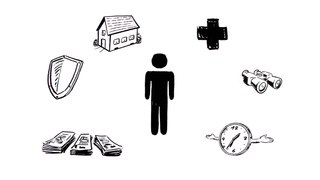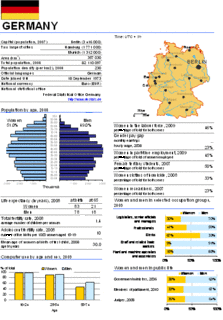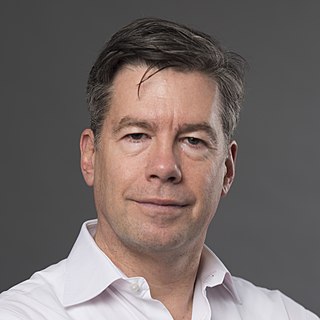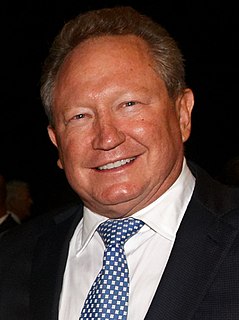Transparency International e.V. (TI) is an international non-governmental organization which is based in Berlin, Germany, and was founded in 1993. Its nonprofit purpose is to take action to combat global corruption with civil societal anti-corruption measures and to prevent criminal activities arising from corruption. It publishes for example the Global Corruption Barometer and the Corruption Perceptions Index. Transparency International has the legal status of a German registered voluntary association (Eingetragener Verein) and serves as an umbrella organization. Its members have grown from a few individuals to more than 100 national chapters which engage in fighting corruption in their home countries. TI confirmed the dis-accreditation of the national chapter of United States of America in 2017.

Cochrane is a British charity formed to organise medical research findings so as to facilitate evidence-based choices about health interventions faced by health professionals, patients, and policy makers. Cochrane includes 53 review groups that are based at research institutions worldwide. Cochrane has approximately 30,000 volunteer experts from around the world.

The Index of Economic Freedom is an annual index and ranking created in 1995 by The Heritage Foundation and The Wall Street Journal to measure the degree of economic freedom in the world's nations. The creators of the index took an approach similar to Adam Smith's in The Wealth of Nations, that "basic institutions that protect the liberty of individuals to pursue their own economic interests result in greater prosperity for the larger society".
Free the Slaves is an international non-governmental organization and lobby group, established to campaign against the modern practice of slavery around the world. It was formed as the sister-organization of Anti-Slavery International but has subsequently broken links with Anti-Slavery International and has no relationship with it. The organization was created as a result of research done by Dr. Kevin Bales in his book, Disposable People: New Slavery in the Global Economy. Free the Slaves' approach is a focused strategy in the context of efforts around the world to enable people to meet their basic needs. Access to economic opportunities, health services, universal education, and strong rule of law would reduce the vulnerability of poor people to enslavement. Free the Slaves supports these efforts while recognizing that the existence of slavery calls for a specific and direct approach to its eradication.

Gross National Happiness is a philosophy that guides the government of Bhutan. It includes an index which is used to measure the collective happiness and well-being of a population. Gross National Happiness is instituted as the goal of the government of Bhutan in the Constitution of Bhutan, enacted on 18 July 2008.

Freedom in the World is a yearly survey and report by the U.S.-based non-governmental organization Freedom House that measures the degree of civil liberties and political rights in every nation and significant related and disputed territories around the world.

Slavery has been called "deeply rooted" in the structure of the northwestern African country of Mauritania, and "closely tied" to the ethnic composition of the country.
Global Integrity is an independent, nonprofit organization tracking governance and corruption trends around the world using local teams of researchers and journalists to monitor openness and accountability. Global Integrity's reporting has been cited by over 50 newspapers worldwide, and is used by the World Bank, USAID, Millennium Challenge Corporation and other donor agencies to evaluate aid priorities. Global Integrity's methodology differs considerably from existing metrics of governance and corruption by using local experts and transparent source data, rather than perception surveys. Unlike traditional charities, Global Integrity is a hybrid organization that seeks to generate earned revenue to support its public-interest mission.
Provision of education in the UAE began shortly after the establishment of the federation with the inception of the first university in Al Ain, Abu Dhabi, the United Arab Emirates University. Since then, the country has progressed with efforts of ensuring high literacy rates, modern programs and women’s share in education. It works on improving its youths education which is why the agenda 2021 has been set.The UAE currently devotes approximately 25 percent of total federal government spending to education. The overall literacy rate is 90%.

Contemporary slavery, also known as modern slavery or neo-slavery, refers to institutional slavery that continues to exist in present day society. Estimates of the number of slaves today range from around 21 million to 70 million, depending on method used to estimate and the definition of slavery being used.

Official statistics are statistics published by government agencies or other public bodies such as international organizations as a public good. They provide quantitative or qualitative information on all major areas of citizens' lives, such as economic and social development, living conditions, health, education, and the environment.
HIV/AIDS in Namibia is a critical public health issue. HIV has been the leading cause of death in Namibia since 1996, but its prevalence has dropped by over 70 percent in the last 10 years(2006-2015). While the disease has declined in prevalence, Namibia still has some of the highest rates of HIV of any country in the world. In 2016, 13.8 percent of the adult population between the ages of 15 and 49 are infected with HIV. Namibia had been able to recover slightly from the peak of the AIDS epidemic in 2002. At the heart of the epidemic, AIDS caused the country's live expectancy to decline from 61 years in 1991 to 49 years in 2001. Since then, the life expectancy has rebounded with men living an average of 60 years and women living an average of 69 years

Slavery in Korea existed since antiquity. The practice of slavery in South Korea is illegal, though forms of modern slavery such as human trafficking still exist. In North Korea, slavery in the form of forced labor is still practiced by the country's regime.
The Global Slavery Index is a global study of modern slavery conditions by country published by the Walk Free Foundation. To date, four editions have been published, in 2013, 2014, 2016, and 2018. In 2018, building on the Global Estimates of Modern Slavery, the report estimated that globally 40.3 million people were in some form of modern slavery on any given day in 2016.

Nick Grono is an Australian human rights campaigner who heads the Freedom Fund – the world’s first private donor fund dedicated to ending slavery. He is also the co-chair of the Jo Cox Foundation, and a board member of Girls Not Brides, the Global Partnership to End Child Marriage.
North Korea ranks as the least democratic country in the world in The Economist Intelligence Unit's Democracy Index, while The Heritage Foundation and The Wall Street Journal's Index of Economic Freedom places the country as the one with least economic freedom. According to the Press Freedom Index, North Korea has the least free press in the world.
Open data indices are indicators which assess and evaluates the general openness of an open government data portal. Open data indices not only show how open a data portal is, but also encourage citizens and government officials alike, to participate in their local open data communities, particularly in advocating for local open data and local open data policies.







